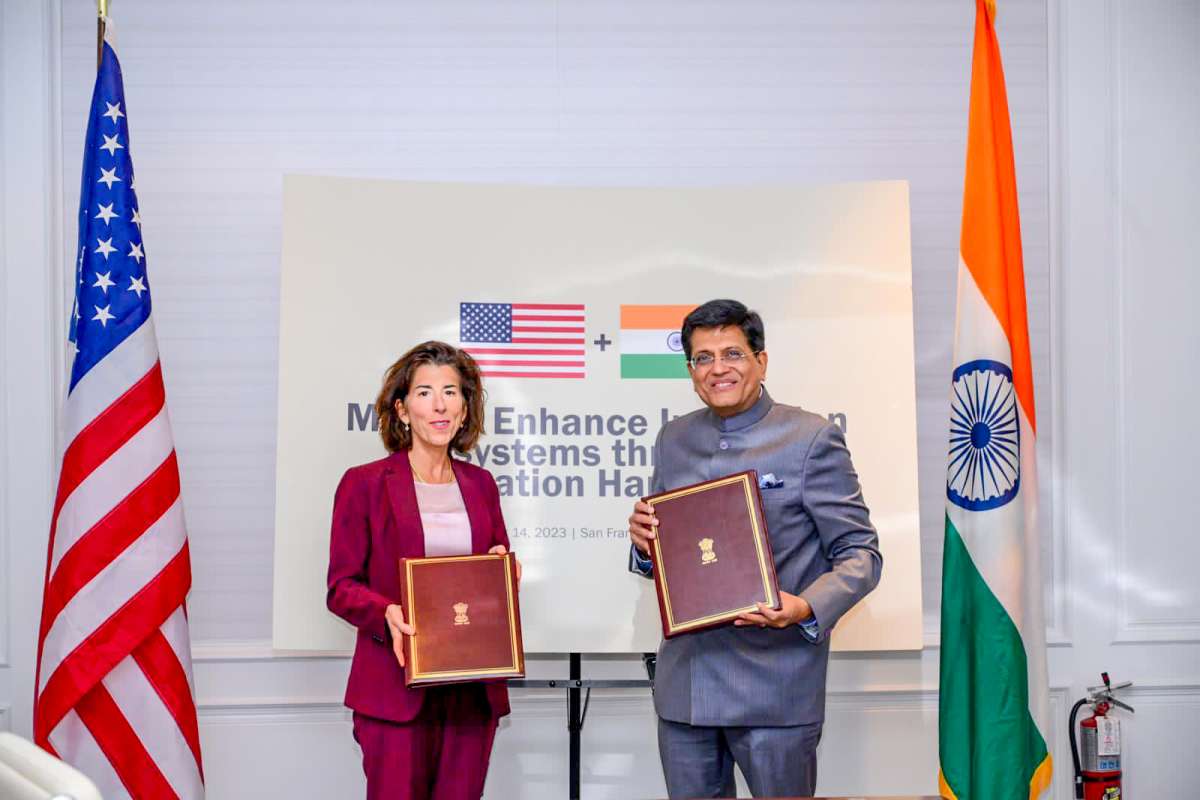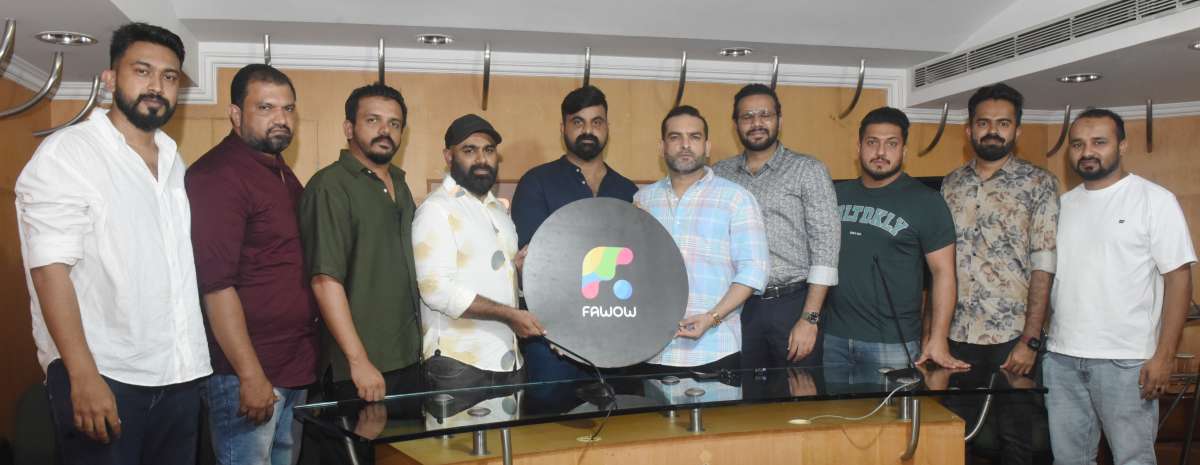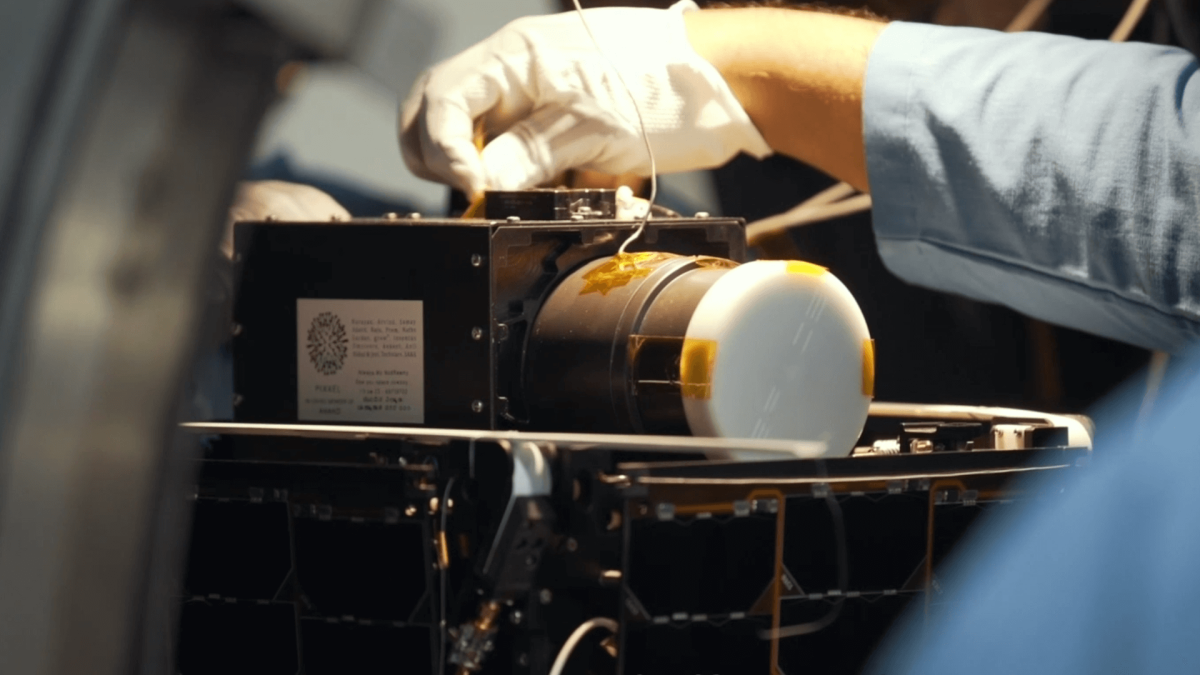Piyush Goyal in a post on X said the MoU is poised to positively impact –economic activity, attract investment, and generate employment…reports Asian Lite News
An MoU between India and the US was signed with the objective of connecting both the countries’ dynamic startup ecosystems, particularly in critical and emerging technologies (CET).
The understanding named ‘Enhancing Innovation Ecosystems through an Innovation Handshake’ was signed by Union commerce minister Piyush Goyal from the Indian side, who is on a 4-day US visit.
Piyush Goyal in a post on X said the MoU is poised to positively impact –economic activity, attract investment, and generate employment.
Minister Goyal also held a bilateral meeting with his US counterpart Gina Raimondo on the sidelines of the IPEF Ministerial Meeting and discussed the growing India-US commercial cooperation and business engagement.
Piyush Goyal also co-chaired the industry roundtable titled, ‘Decoding the Innovation Handshake: US-India Entrepreneurship Partnership’ along with Raimondo.
CEOs of various Information Communication Technology (ICT) companies, startups and investors in the critical and emerging technology space discussed how to enhance US-India technology collaboration.
During his ongoing visit, India joined the United States and 12 other Indo-Pacific Economic Framework for Prosperity (IPEF) partners to ink the IPEF supply chain resilience agreement. Goyal said it will “fortify and strengthen” global supply chains.
India and the US are among the 14 supply chain resilience partners of IPEF along with Australia, Brunei Darussalam, Fiji Indonesia, Japan, the Republic of Korea, Malaysia, New Zealand, the Philippines, Singapore, Thailand and Vietnam.
This global supply chain resilience agreement is seen as a counter to reducing massive reliance on China, particularly after severe supply disruptions after the COVID-19 shock.
Under the proposed agreement, the IPEF partners seek to provide a framework to build their collective understanding of significant supply chain risks; and improve crisis coordination and response to supply chain disruptions.
It will also seek to ensure that workers and businesses, especially micro-, small-, and medium-sized enterprises benefit from resilient, robust, and efficient supply chains; ensure the availability of a sufficient number of skilled workers in critical sectors and key goods, including by upskilling and reskilling workers, among others.
In a post on microblogging site X, after the signing of the agreement, Union Minister Goyal who is currently on a four-day visit to the US said that the first-of-its-kind international agreement will “fortify and strengthen” global supply chains, and “foster adaptability, stability and sustainability.”
Goyal thanked his US counterpart Gina Raimondo for her leadership and personal commitment to ensuring the “truly historic” moment towards a more resilient future.
Earlier, in an interactive session held in San Francisco as part of the first leg of the tour in the US, the Union Minister held wide-ranging discussions with the participants and highlighted the various steps taken by the government of India to improve the ease of doing business. He has so far held various bilateral meetings with his counterparts of various countries.
“…highlighted how the country offers promising opportunities for investors, thanks to the unique combination of our demographic dividend, manufacturing capabilities & conducive business environment,” Goyal posted on X, contending that India is an attractive investment destination for the world.
The Commerce and Industry minister kicked off his US official tour with a visit to the Tesla Factory Unit in Fremont and interacted with the senior executives of the Tesla group.
In a post on X Goyal said that the US electric car maker is on its way to double its component imports from India.
Tesla CEO Elon Musk had in June this year said that he was planning to visit India next year, adding that he was confident that the electric carmaker will be in India and will do so “as soon as humanly possible.” (ANI)
ALSO READ-Piyush Goyal Touts India’s Investment Appeal in US Tour










